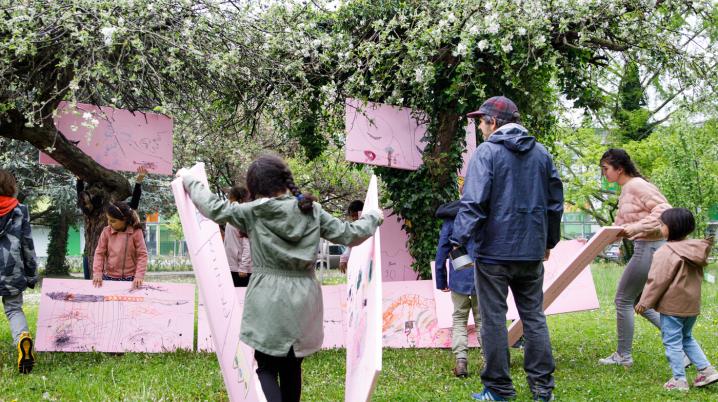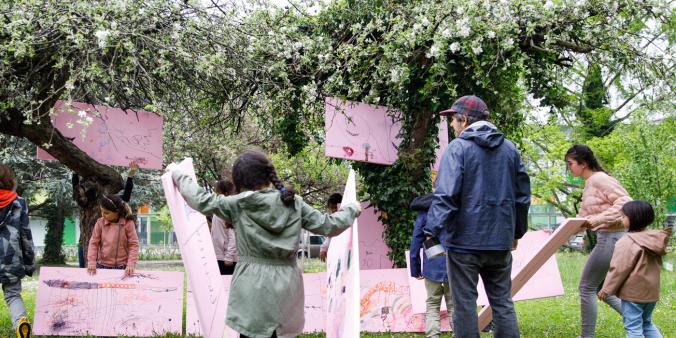
2023 Researcher-in-Residence programme at KinderKunstLabor
Rethinking Art Education is an international, collaborative, and practice-based research project organized by the KinderKunstLabor, which is hosting a first-time residency program in 2023 as part of its own founding and formation. A new building will open in 2024 in St. Pölten and is set to become a unique hub for international contemporary art, children, and artists. Geared toward children up to twelve years of age, the new venue will offer two exhibitions a year, a children’s biennial, and a variety of thematically interrelated workshops and projects. The quality, event-based character, and topicality of contemporary art productions by international artists have the capacity to set in motion both individual educational processes and socially relevant reflections. Fellows selected by an expert jury will examine the potentialities of contemporary art for and with young audiences.
The KinderKunstLabor is a learning institution. Experiences and insights from educational processes are applied to the realm of art education and curating in a certification centre developed specifically for this purpose in cooperation with a university network. This is achieved with the RiR through an examination of current discourses and practices that are focused on phenomenological approaches, spatial aspects in art production, curating and art education for and with children. Closely intertwined with this, fellows will conceive and implement qualitatively based research projects that accompany ongoing projects of the KinderKunstLabor.
The art system characterises contemporary art more as an accumulation of knowledge and symbolic capital than as a resource for educational processes or the person or group experiences of young audiences. Nevertheless, uncharacteristic perspectives can be gleaned from interactive and performative art education situations. Few studies have examined the extent to which more experimental education processes are capable of initiating new perspectives and insights in and with young audiences. Accordingly, the aim of the RiR program is to more closely integrate practice and theory. Sustainable accompanying research allows findings to flow into practice. The RiR program enables fellows to develop and carry out a research-based project in collaboration with the KinderKunstLabor team.
Activities include the analysis, archiving, and documentation of artistic projects and exhibitions; empirical-qualitative research, e.g., in connection with artistic-research approaches; conferences; online and print publications; workshops and certifications.
The fellowship offers researchers from the EU active in the fields of contemporary art, curating, and education the opportunity to live and work in St. Pölten for a period of nine months with possible extension. They invite researchers with different artistic and theoretical practices to apply. Artistic expertise or experience with aesthetic processes and in-depth knowledge of the art field are a prerequisite. A sound command of the German language is essential. The fellowship is also aimed at students pursuing a doctorate or PhD. Priority will be given to research proposals developed in relation to and in dialogue with the specific, on-the-ground realities of the location. Fellows will have access to institutional infrastructures and are expected to present their findings at an event at the end of their stay.
The location offers fellows access to site-specific resources during their stay, and they can play a role in shaping a new and unique art institution. There are also opportunities to present talks and teach courses at academies and universities in their network. The residency includes travel, accommodation, a stipend, and production costs. Further information is available on request.
The application must include the following:
- Your contact information (name, address, email, phone number, website)
- Letter of motivation outlining your reasons for applying (max. one page)
- Short informative CV (max. one page)
- Compilation of previous research and projects (max. ten MB)
- Draft research concept (max. two pages)
Please send your application in German or English in PDF format with the subject heading “Mittlung neu denken” to: [email protected].
Inquiries to: [email protected]. Deadline: December 31, 2022.


